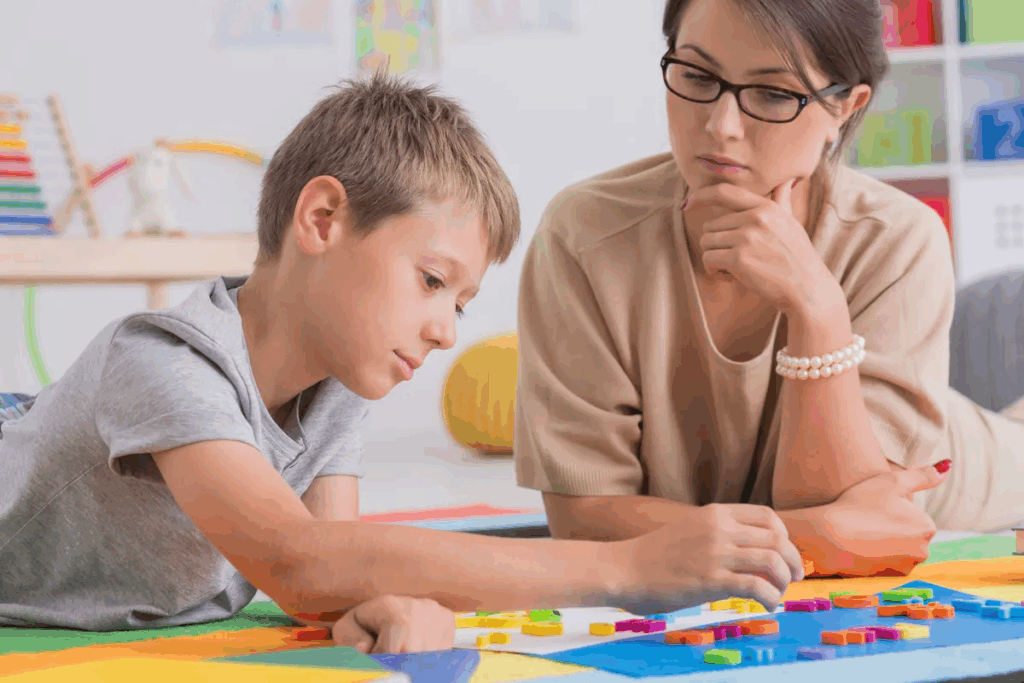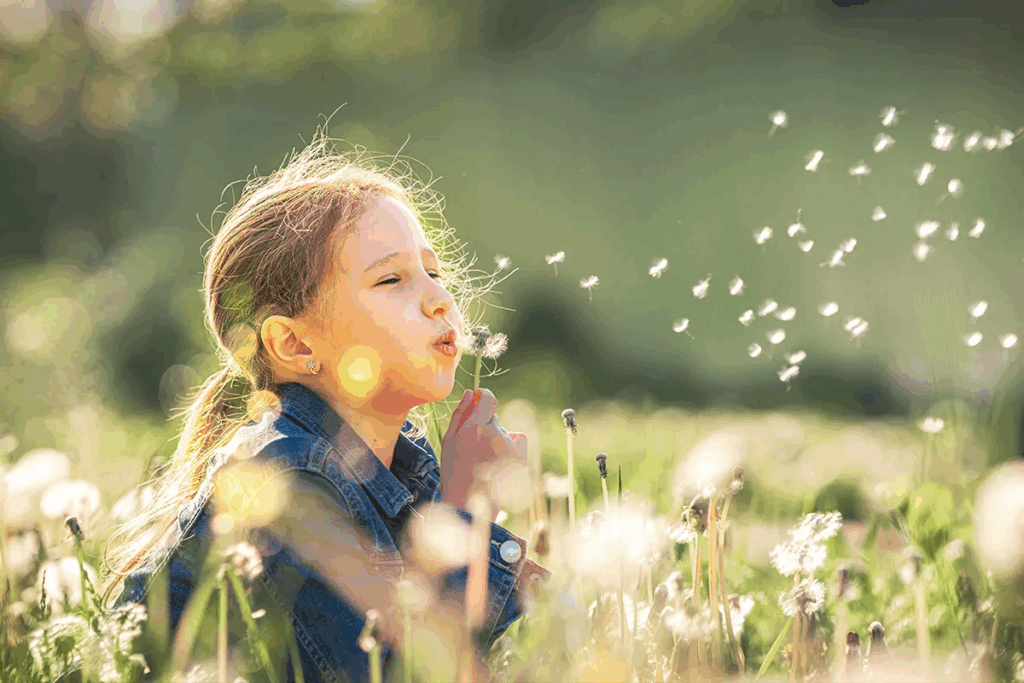Last Updated on November 17, 2025 by

Exploring human growth, we find three key areas: physical, cognitive, and psychosocial development. These key developmental areas work together, shaping our growth.
It’s important to understand these areas. They cover different milestones and challenges. Physical development deals with growth and motor skills. Cognitive development is about thinking and solving problems. Psychosocial development looks at emotional and social interactions.
Looking into these three main developmental issues helps us understand human growth better. This knowledge is key to tackling the challenges they bring. Among all developmental psychology topics, three issues are key. Our guide explains these critical areas and their importance
Understanding human development is key to grasping developmental psychology. It covers stages from infancy to adulthood. Many factors like genetics, environment, and social interactions play a role.
We look at the science behind developmental stages and why they matter. Theorists like Freud, Erikson, and Piaget have outlined different stages. They highlight the importance of early experiences and the mix of nature and nurture.
Studying developmental stages involves understanding life’s biological, cognitive, and psychosocial changes. Developmental stages have specific milestones and challenges. People must overcome these as they grow.

Studying developmental issues is vital for understanding growth and development. It helps identify developmental psychology topics important for support and intervention.
By exploring development psychology topics, we learn about the complex mix of genetics and environment. This knowledge helps us support healthy development at all ages.
Physical development is the first major developmental issue. It sets the stage for future growth. It includes the growth patterns and motor skills that are key for a child’s development.
Children’s growth patterns follow a set sequence, but the pace varies. Motor skills, both gross (like walking) and fine (like writing), are vital. “Motor skills are essential for children’s independence and interaction with their environment,” studies say.
Developmental motor delays affect about 5%-10% of kids worldwide. These delays can stem from genetics, nutrition, or environment. Early help is needed.

Children may face physical challenges like growth disorders or motor skill delays. Spotting these early is key to the right help. For example, a child with motor skill delays might need physical therapy.
Early intervention is key to tackling these issues. Parents and caregivers should know the typical milestones. They should seek medical advice if they see delays.
Nutrition is critical for physical development. Kids need the right nutrients for growth and motor skills. Environmental factors, like toxins and healthcare quality, also play a big role.
Understanding how nutrition, environment, and physical development interact is vital. Good nutrition and a safe environment can help prevent delays. This is what developmental psychology quizlet resources emphasize.
In summary, physical development is complex, influenced by genetics, nutrition, and environment. Knowing these factors and spotting challenges early helps support healthy growth in kids.
Cognitive development is key to human growth. It includes learning language, forming memories, and acquiring new knowledge. This area is vital for understanding how we grow from babies to adults.
Learning a language is a big part of cognitive development. It lets us talk and share our thoughts. Theories of language acquisition say we’re born with a language ability. We learn language through genes and our environment.
Language learning is linked to cognitive growth. It’s not just about making words. It’s also about understanding their meanings. Good communication skills help us interact, learn, and grow.
Memory is essential for cognitive development. It lets us keep and get back information. Memory development gets better as we grow. It involves improving attention, perception, and problem-solving.
Learning and memory go hand in hand. Cognitive theories, like Piaget’s, show how we build knowledge. Knowing these processes helps us create better learning plans.
Cognitive disorders, like learning disabilities, affect development. Early detection and help are key to lessening their impact. Understanding these disorders helps us find ways to improve outcomes.
The effects of cognitive disorders show the need for support and special education. Recognizing cognitive development’s complexity helps us meet the needs of those with disorders. This promotes their well-being.
Psychosocial development is about how we feel and interact with others. It’s key to understanding how we grow and connect with our world.
This area of development is not just about personal growth. It’s also about how we handle social situations and emotions. Emotional regulation is a big part of it, helping us manage our feelings in different situations.
Emotional regulation is at the heart of psychosocial development. It’s about knowing and controlling our emotions. Good emotional control is linked to a positive view of ourselves, which is good for our mental health.
As we grow emotionally, we also shape our self-concept. This is shaped by our interactions and experiences. A positive self-concept helps us stay strong and feel good about ourselves.
Social skills are also key in psychosocial development. They help us build and keep good relationships, communicate well, and work together. Learning these skills in our teens is important for our future relationships.
Good social skills also help with emotional control. Positive interactions with others can make us feel better emotionally. On the other hand, trouble in social relationships can make emotional control harder.
Mental health is a big concern in our teens, a time of big growth. About 39% of teens feel sad or hopeless for a long time. We need to create supportive environments for their healthy growth.
Supporting teens’ mental health means helping them control their emotions, build positive relationships, and have a strong self-image. This helps them get through this important time in their lives.
In summary, psychosocial development is complex and vital for understanding human behaviour. By focusing on emotional control, social skills, and mental health, we can support people, mainly teens, as they face life’s challenges.
Exploring developmental psychology reveals its core topics and ongoing studies. This field looks at how humans grow, including physical, mental, and social aspects.
Studies show that different areas of development are linked. For example, cognitive development ties closely with physical development. Better motor skills help with learning and thinking.
Also, psychosocial development is shaped by and affects both cognitive and physical growth. Knowing these connections helps in creating better support plans.
By seeing how these areas work together, experts can help more effectively. This is key for supporting people, mainly during important growth times.
Certain times in life are more open to new experiences or help. Early childhood is key for learning languages. Early support can greatly improve language skills later on.
Finding these critical times helps tailor support. It makes interventions more effective. This is when help can make the biggest difference in growth.
Recent studies show a worrying increase in anxiety and behavioural issues in kids and teens. This calls for strong support systems and early help.
Keeping up with new research is vital. It helps us make better practices and policies. Understanding the latest in developmental psychology lets us create targeted help for growing disorders.
As we dive deeper into topics on developmental psychology, it’s clear we need a broad approach. Combining knowledge from various areas and staying updated with research helps support growth. It also helps tackle new challenges.
We’ve looked at three key developmental issues. These are stability vs. change, continuity and stages, and nature vs. nurture. They are the core of developmental psychology topics.
These topics are important because they help us support healthy growth. They also help us tackle the challenges that come up during development. By knowing how physical, cognitive, and psychosocial development work together, we can help people at all stages of life.
Studying developmental psychology helps us find the best times to offer support. This knowledge helps us create plans to prevent or manage developmental and behavioural issues. As we dive deeper into these topics, we learn more about what shapes human growth.
Looking into developmental psychology topics helps us understand human development better. It also helps us improve our support for people at every stage of their lives.
The three main issues are physical, cognitive, and psychosocial development. They are key to understanding how we grow and develop.
It’s vital because it helps us grasp the challenges in physical, cognitive, and psychosocial development. It also promotes healthy growth at all ages.
Studying developmental stages is important. It shows us the science behind human growth. It also highlights the role of nature and nurture and the contributions of different theorists.
Nutrition and environment are key for physical development. They affect growth, motor skills, and health.
Disorders like learning disabilities and memory issues can affect development. Early detection and help are very important.
Emotional regulation is vital. It helps manage emotions, develop social skills, and maintain good mental health.
Important topics include how different areas of development connect, the importance of early intervention, and new trends in disorders.
Topics in developmental psychology are closely tied to ongoing research. This research guides practice and policy to support healthy development and tackle challenges.
It’s essential to look at both nature and nurture. This approach recognizes the complex mix of genetics and environment that shapes our growth and development.
Ponomaryov, V., & Makarova, E. (2025). Human development across the lifespan: Psychological perspectives on physical, social, and cognitive growth. American Journal of Psychiatric Rehabilitation, 28(1), Article 126. https://doi.org/10.69980/ajpr.v28i1.126
American Psychological Association. (2025). Developmental psychology: Studies humans across the lifespan. Retrieved from https://www.apa.org/education-career/guide/subfields/developmentalMcLeod, S. (2025). Piaget’s theory and stages of cognitive development. Simply Psychology. Retrieved from https://www.simplypsychology.org/piaget.html
Subscribe to our e-newsletter to stay informed about the latest innovations in the world of health and exclusive offers!